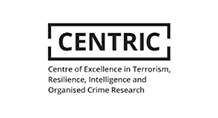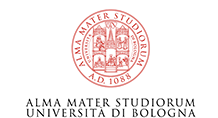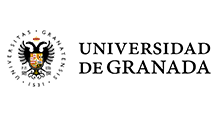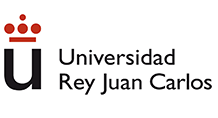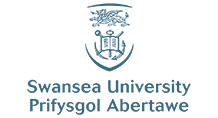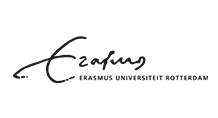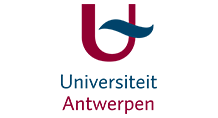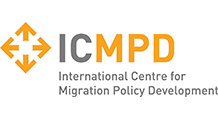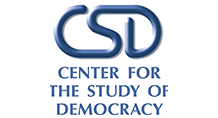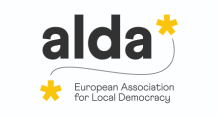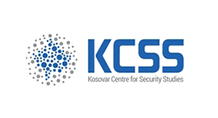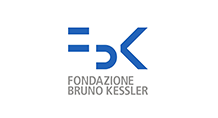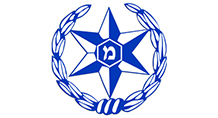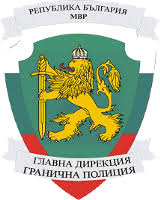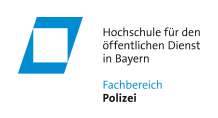The PERCEPTIONS project brings together 25 partners from twelve different European regions, as well as three non-European countries. PERCEPTIONS has a wide geographical spread that allows the consideration of a non-European perspective (Algeria, Egypt, and field offices in other Northern African countries), field research in countries of arrival (Cyprus, Greece, Italy, Spain), countries of transit (Israel, Bulgaria, Kosovo), as well as countries of destination (Austria, Belgium, France, Germany, Netherlands, and the UK).
SYNYO GmbH (SYNYO) (Coordinator)
Research & Development Department
Description
SYNYO is a research-based company focusing on research, innovation and technology located in Vienna, Austria. SYNYO explores, develops and implements novel methods, approaches, technologies and solutions in various domains with a particular focus on tackling societal, political, ecological and economic challenges. SYNYO analyses the impact of emerging technologies from different angles and from an interdisciplinary perspective. The team at SYNYO consists of 25 highly skilled employees specialized in various scientific and technical fields such as Social Sciences, Safety & Security, Energy & Sustainability, Urban Future, Smart Technologies, Smart Health, or Digital Systems.
SYNYO has access to a vast network of knowledge including research institutions, networking organisations, technology providers and industry leaders being well connected within the scientific community and will provide own research and innovation network platforms in the near future. In 2015 and 2016, SYNYO was among the Top 3 most successful research-oriented SMEs in Austria (H2020 Performance Monitor by FFG-the Austrian Research Promotion Agency).
SHEFFIELD HALLAM UNIVERSITY (CENTRIC)
Centre of Excellence in Terrorism, Resilience, Intelligence and Organised Crime Research
Description
CENTRIC (Centre of Excellence in Terrorism, Resilience, Intelligence and Organised Crime Research) is a multidisciplinary, security-focused research centre located at Sheffield Hallam University. The strategic aim of CENTRIC is to develop and facilitate the collaboration between four key stakeholders in the security domain: citizens, law enforcement agencies (LEA’s), industry and academia. Consequently, CENTRIC is able to provide solutions to some of Europe’s most pressing contemporary security challenges through the delivery of ground-breaking research, advanced technological capabilities, professional expertise and training. The work of CENTRIC builds on several years of collaboration with a range of colleagues across government, academia and the private sector. CENTRIC has a strong applied orientation and proven track record in multiple disciplines employing over 30 staff with a wide range of backgrounds and expertise. Particular capabilities aligned to our work in PERCEPTIONS include border security, radicalisation, community policing, humanitarian actions and migration, human trafficking and modern slavery and open source intelligence investigation. In each of these domains, CENTRIC holds specialist skills in fields such as data mining, analytics and visualisation, practitioner driven, evidence-based applied research and the application of social media, digital communication and technology to security research. In recent years, CENTRIC has participated in the delivery of several major H2020 projects supporting a range of tasks from requirements elicitation, desk-based research, stakeholder engagement, software and technical delivery, and piloting and demonstration.
ALMA MATER STUDIORUM – UNIVERSITA’ DI BOLOGNA (UNIBO)
Department of Psychology / Department of Sociology and Business in Law
Description
The Alma Mater Studiorum, since its origins in 1088, has been student-centred hosting prominent figures from science and the arts. Based in five campuses, it is a hub of international networks, enjoying multiple connections with America, Africa, Asia and Australia. UNIBO has gained a considerable experience in International and European research projects, successfully participated in FP7 and Horizon 2020 for a total of and 150,8ML Euros of funding.
Regarding the project PERCEPTIONS, the activity of the University of Bologna will be conducted within Department of Psychology and Department of Sociology and Business Law which are active in research and development having a reputation for being involved in several competitive research projects on social and community psychological issues such as public perceptions, attitude change, design and evaluation of training and communication campaigns as well as social media analysis, communication campaigns, public perceptions, behavioural change, participatory processes, social innovation issues, and migration studies.
The Department of Psychology offers expertise on psychological, social and organizational issues related to the use of disruptive technologies and social media through its vast expertise and background in quantitative and qualitative data collection, data management and data analysis.
The Department of Sociology and Business Law proposes an interdisciplinary and transdisciplinary approach based on participatory and inclusive dynamic processes in the field of social research on cultural processes, social integration of migrants, refugees and marginalized social groups.
During the project, UNIBO will be involved as research partner in WPs 2, 3 and 4, and will lead the elaboration, testing and validation of the PERCEPTIONS Multidimensional Approach Model (WP5), will contribute to the development of the web platform and to the dissemination activities in WP8.
UNIVERSIDAD DE GRANADA (UGR)
Faculty of Social and Legal Sciences, Melilla Campus (Department of Applied Economics, Department of Criminal Law, and Department of Statistics and Operational Research) / Faculty of Education and Sport Sciences, Melilla Campus (Department of Didactics and School Organization)
Description
The University of Granada (UGR) founded in 1531, is one of the largest and most important universities in Spain. It serves more than 70,000 individuals – over 55,000 undergraduate and postgraduate students and 6,000 staff members (researchers, lecturers, and administrative staff) – are directly linked to the UGR, making it the 4th largest university in Spain. Five of the UGR’s seven campuses are spread out across the city of Granada, giving it an unmistakable university atmosphere. Meanwhile, the University’s campuses in the North African cities of Melilla and Ceuta make it one of the few genuinely intercontinental universities in the world. The university community has turned Granada, Melilla, and Ceuta with is around 400,000 inhabitants, into a vibrant and cosmopolitan cities. The University of Granada is a leading institution in research, located in the top 5/10 of Spanish universities by a variety of ranking criteria, such as national R&D projects, fellowships awarded, publications, or international funding. UGR is one of the few Spanish Universities listed in the Shanghai Top 500 ranking. UGR is involved in a wide range of international networks and projects thanks to the long list of co-operation partners it has throughout the world.
PERCEPTIONS´s project is focused mainly in one of the tow UGR´s campuses situated in the North of Africa, the Campus of Melilla, particularly in two of its Faculties, Faculty of Social Sciences and Legal Sciences and Faculty of Education and Sport Sciences, where the tasks and the field work will be coordinated. The UGR´s campus in Melilla and Ceuta are perfect places to fulfil the role of a bridge between Europe and Africa. Both campus, situated on the southern border of Europe in the African continent, provide relevant data in what we might consider as the `reception/first-arrival´ contexts of immigration. At the same time, due to the geographical situation of Melilla and Ceuta, the group could carry out the field work in some of the countries that are part of the main immigration arrival routes, such as Morocco. The group has collaborators within the city of Melilla that could be keystone in collecting information, such as the Immigrant Temporary Stay Centers.
UNIVERSITY REY JUAN CARLOS (URJC)
Description
Universidad Rey Juan Carlos (URJC) is URJC is a young public university with several campuses in the greater Madrid area, whose mission is to foster innovative research and high-quality education in one of Spain’s fastest-growing regions. URJC has managed to grow up to 44.000 students and nearly 1,570 lecturers, being currently the second largest among the six public Universities in Madrid in terms of students. URJC has a strong international projection, with an academic community comprising 5,300 foreigners from 92 countries.
MISSION
Rey Juan Carlos University performs the public service of higher education through research, teaching and study. The functions of the Rey Juan Carlos University at the service of society are:
- The creation, development, transmission and criticism of science, technology and culture.
- The preparation for the exercise of professional activities that require the application of knowledge and scientific methods and for artistic creation.
- The diffusion, valorization and transfer of knowledge at the service of culture, quality of life, and economic development.
- The dissemination of knowledge and culture through university extension and lifelong learning
KEY RESEARCH AREAS
As a multidisciplinary academic and research entity, Universidad Rey Juan Carlos promotes research aimed at economic and social development, promoting and enhancing the research activity, dissemination and transfer of knowledge and research results to society.
The promotion of R&D&i activities is carried out through collaborations with companies and institutions, and participation in national and international calls that allow our researchers to develop their research lines contributing to the generation, expansion and dissemination of knowledge, and the advancement of science and technology.
RANKINGS
In 2017 Rey Juan Carlos University which ranks 82nd at UI GreenMetric World University Rankings
According to the Times Higher Education World University Ranking (THE), The Rey Juan Carlos University (URJC) ranks, thanks to the excellence of its Engineering and Technology degrees, among the 400 best universities in the world. Nationally it stands out as one of the top 10 universities. Thus, the URJC reaches the third position in Spain, taking into account the citations of its scientific articles (with a score of 68.5 out of 100).
At a global level, and according to this same international ranking, the URJC was already among the 800 best universities in the world. And among the 200 best rated universities with less than 50 years.
The I-UGR is a ranking of public and private Spanish universities, based on research published in the international journals with the greatest impact and visibility. According to the statements provided, the main goal of this ranking is to detect the strengths and weaknesses of the Spanish university research system in different areas of knowledge.

UNIVERSITY OF NORTHUMBRIA AT NEWCASTLE (UNN)
Northumbria Social Computing (NorSC) Group at the Department of Computer and Information Sciences (CIS)
Description
The University of Northumbria at Newcastle (UNN) in the UK has over 27,000 students from over 100 countries, 16 multidisciplinary departments, campuses in Newcastle, London and Amsterdam, regional offices in China, India, Malaysia, Sri Lanka, Indonesia, Singapore and partnerships with HE institutions across the world. The University employs 1,240 academic and research staff across four Faculties. UNN has wide experience as partner or coordinator in several international funded research projects from the EC programmes Framework Programme 5 to Horizon 2020, and from other EC funding sources.
The Northumbria Social Computing Lab (Nor.SC) in the Computer and Information Science Department supports, represents and disseminates the emerging work in computer science at Northumbria University related to social computing, human computer interaction (HCI), interaction design and digital aspects of living. The lab’s main research lies at the boundary between computing and the social sciences and typically explores the use and significance of social media, and other collaborative and participatory digital services, in people’s lives. Nor.SC experience comprises research on the collection, analysis and interpretation of media, text, speech and image data in relation to societal issues and concerns. This has included a recent focus on the understanding of the cultures of fear that can be propagated through online othering, mistrust and stigmatization of communities including migrants and refugees. Our research has explored how online stigmatization takes place, but also how new interactive digital experiences might be designed to counteract this, and lead to more critical and balanced online debate around contemporary socio-political issues and therefore how to break so-called filter bubbles and echo chambers.
In PERCEPTIONS, UNN will lead WP4, focusing on the social media analysis using secondary data from selected channels, and will contribute to research and further activities in WP2, WP3, WP5, WP7, and WP8.
SWANSEA UNIVERSITY (SU)
Centre for Migration Policy Research
Description
Swansea University is one of the top research intuitions in the United Kingdom. Building on the outstanding results of the 2014 Research Excellence Framework (REF), when Swansea has risen from 52nd in 2008 to 26th in the UK for the quality of research, Swansea university places clear emphasis on increasing inter-disciplinary research collaborations with global partners. It was ranked joint 9th in the UK for research impact and 11th for research environment according to 2014 Research Excellence Framework (REF) results. Swansea now Wales’ top university – winning Welsh University of the Year accolade in The Times and The Sunday Times Good University Guide 2017. The proposed project is closely linked to Swansea’s research and internationalization strategies aimed at increasing the quality, competitiveness and visibility of universities’ activities and outcomes. With its established Centre for Migration Policy Research, Swansea has substantive experience in producing top-quality academic publications and policy-recommendations on the topic of international migration central to this proposal. It has significant expertise in analysing cross-European migration movements, researching demographic trends, socio-economic development, as well as developing conceptual tools for migration management, using innovative methods for engagement with migrant populations and creating practice-oriented migration policy toolkits.
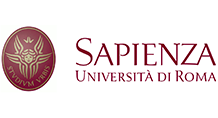
SAPIENZA UNIVERSITY OF ROME (SAPIENZA)
Department of Methods and Models for Economics, Territory and Finance
Description
The University of Rome La Sapienza is the second largest university in the world and one of the most renowned. Department of Methods and Models for the Economy, Territory and Finance (MEMOTEF) is one of its 63 Departments. Located in the School of Economics, the Department include 50 professors and researchers, and hosts two PhD programmes. The Department has as its mission the creation of an advanced scientific research context, both nationally and internationally, based on the integration of methods, tools and approaches aimed at multidisciplinary conceptual description and the analysis of economic phenomena, land management and to support decisions in the financial sector. It promotes and coordinates research activities on the following topics: probability theory and statistical modelling; mathematical models, statistical and computational economics, finance and insurance; methods for social research, population and policy analysis; methods for linguistic research, languages and foreign cultures; economic and spatial analysis; economic history and regional studies. The Department has a long experience in transdisciplinary research based on the application of both quantitative and qualitative methods, and in the participation and coordination of large-scale international research projects. It will contribute to this project thanks to its expertise in migration studies, population dynamics, data mining and modelling, statistical surveying, European policy analysis and evaluation.
ERASMUS UNIVERSITY ROTTERDAM (EUR)
Description
The Erasmus University Rotterdam (EUR), named after Rotterdam-born humanist and theologian Erasmus, is a research university with a strong international orientation and a pronounced social focus, both in its education and research activities. Our scientists and employees work together with all our students to solve challenges faced by global society, drawing their inspiration from the consistently dynamic and cosmopolitan city of Rotterdam. The academic education offered at our faculties is intensive, engaging and strongly focused on practical application. We increasingly perform our research in multidisciplinary teams, which are closely interwoven with international networks. In terms of research impact and the quality of its degree programmes, EUR can compete with the foremost universities in Europe.
Erasmus School of Social and Behavioural Sciences (ESSB)
The Erasmus School of Social and Behavioural Sciences is home to a vast diversity of scientific disciplines: public administration, pedagogical sciences, psychology and sociology. In addition, the Erasmus University College, IHS, and two research institutes RISBO and DRIFT are linked to the faculty. This also reflects in the content of the (international) bachelor’s and master’s programs and in research. Our activities are always focused on people and society. At the ESSB fundamental, internationally oriented research is of paramount importance. In addition, social research for professionals, policy makers, and the society is part of our research activities. Our education is small-scale and works with innovative forms of education such as Problem-Based Learning (PBL). Both the Dutch and English programs are highly ranked by students and alumni.
UNIVERSITEIT ANTWERPEN (UANTWERPEN)
Centre for Migration and Intercultural Studies
Description
The University of Antwerp is a young, dynamic and forward-thinking university. It integrates the assets of its historic roots with its ambition to contribute positively to society. furthermore, this university develops, provides access to and disseminates scientific knowledge through research, teaching and service to society. It carries out these tasks in a spirit of academic freedom and responsibility. In 2005, the Centre for Migration and Intercultural Studies (CeMIS) was founded on the initiative of a group of researchers who were working together within the framework of the Antwerp Centre for Migrant Studies. CeMIS thus continues to build on the existing research tradition within the University regarding migration and intercultural studies. CeMIS’s objective is to bring together the available research expertise within various disciplines and better understand the complexity of migration and intercultural coexistence. The centre wants to promote the understanding of the impact of migration and intercultural processes on daily life in a globalised and diverse society. CeMIS pursues this social objective with interdisciplinary, fundamental and applied scientific research and academic education. The centre limits itself to the following lines of research: 1) international migration, 2) integration and social cohesion and 3) migration and development. In addition, CeMIS provides a pluralistic and open platform for various stakeholders, such as universities and university colleges, governments and civil society, allowing them to establish a dialogue with a view to developing and acquiring science-based and policy-relevant insights into the themes of migration and integration. CeMIS specifically targets the academic community of the Antwerp University Association as well as national and international researchers in the field of migration and intercultural studies, policymakers and various civil society organisations.
INTERNATIONAL CENTRE FOR MIGRATION POLICY DEVELOPMENT (ICMPD)
Policy, Research and Strategy Directorate
Description
The International Centre for Migration Policy Development (ICMPD) is an intergovernmental organisation headquartered in Vienna, with a mission in Brussels, a Regional Coordination Office for the Mediterranean in Valetta and field offices in Abuja, Amman, Ankara, Ashgabat, Astana, Baku, Bishkek, Beirut, Chisinau, Dushanbe, Pristina, Skopje, Tashkent, Tbilisi, Tunis and Yerevan. ICMPD’s purpose is to promote innovative, comprehensive and sustainable migration policies and to function as a service exchange mechanism for organisations and governments. With currently 17 Member States and around 300 staff, ICMPD’s work is based on three pillars – migration dialogues, capacity building and research. Apart from its role in supporting regional migration dialogues along the main migration routes to Europe and undertaking capacity building projects globally, ICMPD has established a reputation for its research on international migration trends and patterns, as well as policies in the wider European context based on comparative analysis. ICMPD’s research programme is based on empirical research founded on an interdisciplinary and comparative approach. ICMPD conducts both basic research funded through a variety of grant mechanisms and commissioned research, commissioned by individual governments as well as various European Union bodies, including the European Commission, the European Parliament and the European Union Agency for Fundamental Rights.
ICMPD has a long track record in research and capacity building on border management, irregular migration and migration trends. Its research has covered both the wider context of border control, including the challenges to be addressed by border control authorities as well as on views and experiences of travelers subject to border control and research with relevant authorities.
KENTRO MELETON ASFALEIAS (KEMEA)
Description
The Center for Security Studies (KEMEA) is a think tank on homeland security policies and an established research center since 2005 (L. 3387/2005) within the Hellenic Ministry of Citizen Protection (former Ministry of Public Order and Citizen Protection), aiming to support security policy implementations in Greece, at a strategic level.
The activities that KEMEA is involved in include a). the certification of practitioners in private security professions at the national level, b). research & development in the context of National and European projects in close cooperation with LEAs, working under the auspices of the Ministry of Citizen Protection and c). training of practitioners in new systems and technologies.
A main objective of KEMEA is to bring together all national Law Enforcement Agencies (Police, Fire Service, Civil Protection agency, etc.) and to enable them to collaborate, interconnecting them with corresponding agencies, research institutions and the industry from around Europe. This dedicated approach of producing end-user driven research on all fronts of the Security Sector during the last decade, has earned KEMEA its participation in numerous National and EC R&D projects. KEMEA up to now is successfully participating in more than 100 EU & National Projects.
KEMEA is a member of several European associations and organizations and it represented the Greek Government as member of the “European Security Research and Innovation Forum (ESRIF)”. Amongst other associations and organizations, KEMEA is a member of the “Public Safety Communication Europe Forum (PSCE)”, the “European Association of Research and Technology Organizations” and has established links to the ENLETS community (European Network of Law Enforcement Technology Services) etc. Furthermore, KEMEA is appointed as the Greek “National Contact Point” for the implementation of Directive 2008/114/EC, regarding the protection of European Critical Infrastructures.
CENTER FOR THE STUDY OF DEMOCRACY (CSD)
Description
With objectives such as capacity-building, institutional reform, and practical implementation of democratic values, the Center for the Study of Democracy acts as a valuable provider of supra-national expertise for the enhancement of the practical capabilities of European legal and policy communities, and a facilitator of policy dialogue and knowledge exchange between academia and social practice. CSD continuously develops its operational reach to answer to the socio-political, economic, and rule of law challenges of the 21st century.
CSD has a prolific background in contributing to legislative and institutional reforms at home, throughout the European Union and beyond by conceptual development and drafting legislation, as well as policy making in areas traditionally perceived as inviolable public property. The Center has been actively engaged in the area of human rights and has been a valued member and collaborator of a number of fundamental rights networks, in constructive partnership with both government and the non-governmental sector. The Center enables the transcendence of real-life discourse topics into diverse regions of study – from border management and international security, to the integration of third-country nationals and mainstreaming of children’s rights and gender equality.
In most recent years, CSD’s Law, Sociological, Economic and Security Programs have cooperated on contemporary intertwining issues such as the prevention of and fight against organised crime and terrorism, with emphasis on radicalisation and violent extremism, the protection of victims of crime, the promotion of social integration of foreigners and asylum seekers as a tool against racism and xenophobia, migration policy monitoring, as well as related best practices promotion in line with current international trends.
SINUS MARKT- UND SOZIALFORSCHUNG GMBH (SINUS)
Description
SINUS is an independent social and market research institute founded in 1978. Our core competencies include quantitative and qualitative study design and execution, social analytics, market segmentation, usability testing, and participatory methodologies (such as co-creation workshops and visual ethnography). SINUS has conducted thousands of bespoke research projects and over 300 large-scale social segmentation studies in more than 40 countries and territories, cultivating long-term relationships with a wide range of private- and public-sector clients (including the Federal Government of Germany, the European Union and European Commission, the Volkswagen Group, Lufthansa, Deutsche Bank, Deutsche Post, religious organizations, media groups, and universities). PERCEPTIONS sits at the intersection of two of SINUS’ core competencies: digitalisation research and migration research. SINUS and its partner company INTEGRAL have conducted regular quantitative and qualitative research on technology adoption and online life since the 1990s, with one long-running example being the Austrian Internet Monitor series of opinion studies. Recent work includes several large-scale studies for the German Institute for Trust and Safety on the Internet, which address issues of online-offline security and technology acceptance central to the call at hand. Since 2008, SINUS has also focused strongly on migration, conducting multiple quantitative and qualitative studies on a nationwide basis. Our approach to the study of migrant communities is unique in that we take into account not only sociodemographic factors, but also milieus, or social segments united by similar values and lifestyles. Doing so provides stakeholders with multi-dimensional and humanistic insight into the diverse attitudinal and behavioural characteristics of migrant communities, as well as barriers and pathways to effective messaging and participatory governance.
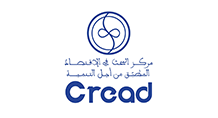
CENTRE DE RECHERCHE EN ECONOMIE APPLIQUEE POUR LE DEVELOPPEMENT (CREAD)
Macroeconomic and Economic Integration
Description
CREAD (Research Center in Applied Economics for Development) is a public institution of scientific and technological character specialised in social sciences and humanities. Since 1975, date of its creation, CREAD is responsible for carrying out scientific research and technological development programs set out in its creation decree. It is headed by a Director, administered by a board of directors and has a scientific council, four research divisions, three technical departments and three administrative departments. CREAD employs 80 permanent researchers and 200 part time researchers. CREAD is composed of 4 research Divisions and 17 research team. The missions devolved to CREAD are directly linked to its field of competence, which is economy and social economy of development. The Centre is responsible to conduct theoretical and applied research on economic development; Study economic and social conditions needed to strengthen intersectoral integration, mastering the technology and ensuring effective management at macro and microeconomic levels; conduct research in areas such as labor economics, education, training, health and housing; study monetary and financial management systems at national and international level. We can find other missions like Gather and process scientific and technical information and ensuring its conversation and dissemination; Contribute to the valorization of the results of scientific research, in particular by ensuring their dissemination, exploitation and use; Provide continuous training and upgrading of research personnel; Contribute to training by and for research; Ensure coordination, monitoring and evaluation of units, laboratories and research teams. Recently (March –June 2018) CREAD had conducted a national survey on Media consummation for BBC Media action.
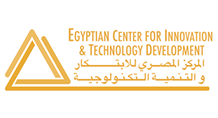
EGYPTIAN CENTER FOR INNOVATION AND TECHNOLOGY DEVELOPMENT (ECITD)
Policy and social studies
Description
ِِECITD is an independent private center dedicated to improving technology management processes while promoting innovation and private sector development. ECITD’s fields of expertise and research focus cover a number of areas, including tech valorization and impact assessment, innovation systems and tech-development, regulation and policy-mix reviews, accountability and governance, Intellectual property rights & innovation management. ECITD develops substantive policy & strategic options on matters relevant to the science & technology, economy & society; provide technical services in market research and growth strategies in addition to monitoring and analyzing technical, economic, mega trends at different technology development levels. ECITD’s focus on public policy is forward looking while concentrating on issues whose trajectories are set to raise significant challenges for Egypt in the coming years.
ECITD comprises 5 technical departments and 6 multidisciplinary research groups. ECITD Tech-development department focuses on Indigenous technology mapping and analysis of skills acquisition while performing specialized technology roadmaps in addition to innovation foresight and risk assessment. With ECITD toolbox of innovation methods, ECITD helps organizations to structure, plan, develop and market innovations while optimizing their technological strategies. ECITD annual plan 2019 has a significant investment in knowledge development and capability building programs. The department of policy-options has issued several strategies and policy-mix reviews while following evidence-based approach in building agile roadmaps. ECITD’s research group for Socioeconomic development has performed several studies in new concepts for mitigating brain-drain in Africa in addition to the analysis of policy implications in priority areas including Energy, Food, Water and Environment. ECITD’s innovation policy group is considered as a dynamic think tank providing thought leadership and policy solutions.
ADITESS ADVANCED INTEGRATEDTECHNOLOGY SOLUTIONS & SERVICES LTD (ADITESS)
Description
ADITESS is a scientific, consulting, and research company whose purpose is to conduct theoretical and applied research and to produce studies, at strategic and tactical level, on issues concerning Security policies, Critical Infrastructure Protection, Transportation security and Border management (monitoring and surveillance), modelling solutions and to develop state of the art applied Security Solutions in the above-mentioned areas.
ADITESS staff is composed of dedicated and experienced professionals who have outstanding professional and academic experience in the area of security and have been involved in EU Research Programs as well as national and international projects for several years. Consisting and cooperating with consultants – researchers with professional and academic experience and a long-standing history in proposal preparation, project management and R&D activities, ADITESS is at the forefront of our offering with clients stemming from a multitude of technological domains, such as Security, Defence, Information and Communication Technologies. A number of ADITESS’ researchers come with ex-military and ex-police forces background in IT Security, Electronic Warfare (EW) and Signal Intelligence (SIGINT) in large-scale National and International operations, over the last fifteen years. This field experience is enhanced by high academic knowledge especially in the security (IT, UAV systems, Electro-optics, Communication, etc.) system’s area.
R&D activities include the areas of machine learning, audio and video analytics with several applications also to UAV platforms and Geospatial related research. Furthermore, R&D department focuses on the design of software components (i.e. web portals, content management systems, mobile applications, data acquisition components) that have the ability to collaborate in an autonomous and decentralized fashion.
EUROPEAN ASSOCIATION FOR LOCAL DEMOCRACY (ALDA)
Description
ALDA, the European Association for Local Democracy, is a no-profit organisation dedicated to the promotion of good local governance and citizen participation. ALDA is a membership-based organisation gathering more than 300 members – Including local authorities, associations of local authorities and CSOs – from over 40 countries. Established in 1999 at the initiative of the Council of Europe’s Congress of Local and Regional Authorities, among its activities ALDA coordinates and supports a network of 15 Local Democracy Agencies (LDAs), created in the early 1990s, located in the Western Balkans and the Mediterranean area. The Local Democracy Agencies are self-sustainable, locally registered NGOs acting as promoters of good governance and local self-government in their regions. Most of ALDA’s work is based on the method of multilateral decentralised cooperation, which involves focuses on strong partnership between local authorities and civil society organisations. These partnerships create positive synergy and ensure that common goals are reached jointly and successfully. ALDA focuses on various themes, such as European integration, decentralisation, civic initiatives and volunteering, human rights, and sustainable economic development.
ALDA is active in the Western Balkans, in the European Union and its Neighborhood – being the Mediterranean area, Eastern Europe, and Southern Caucasus – to foster good governance, citizen participation, European integration, and decentralization, always promoting active citizenship, in tight cooperation with local authorities, civil society networks, and European institutions.
ALDA has recently founded ALDA Plus, a Benefit Corporation, aiming at supporting other stakeholders by providing a wide range of services such as training and capacity building activities, technical assistance, and ad hoc consultancy on different topics, including: project development and implementation, project financial management and audit, EU institutions, non-formal youth education, and more.
KOSOVAR CENTRE FOR SECURITY STUDIES (KCSS)
Description
Kosovar Centre for Security Studies (KCSS) is an independent policy research centre founded in April 2008 and based in Prishtina – Kosovo. KCSS is dedicated to security sector development and reform in Kosovo and Western Balkans. It proactively promote principles of good governance, integrity and resilience. KCSS’s main interest remains to be development of security sector in Kosovo and Western Balkans based on the good governance. For a decade, KCSS has been building and offering alternative expertise in security studies, by filling a void in a limited academic contribution in the field in Kosovo.
KCSS aims to enhance the effectiveness by supporting the SSR programs through its research, events, training, advocacy and direct policy advice. Advancing new ideas and social science methods are also core values of the centre. Each year, KCSS publishes numerous reports, policy analysis and policy briefs. It also, runs more than 200 public events including conferences, round-tables, and debates, lectures – in Kosovo, also in collaboration with regional and international partners.
KCSS supports the consolidation of the security sector development in Kosovo on its path towards Euro-Atlantic integration mainly through:
- Research and Policy Analysis
- Policy Recommendation and Advocacy
- Alternative expertise on contemporary security challenges
- Conferences and Public Discussions on security related issues
- Community engagement and resilience
- Networking and building strong partnerships with relevant think-tanks and academic institutions in region and global level.
KCSS carries out independent and rigorous analysis of critical global, regional and country-specific challenges and opportunities. Our reports, papers, books and other research outputs are a vital resource for leaders and policy-makers in government, the private sector and civil society. Moreover, they serve as a source of information for our international partners.
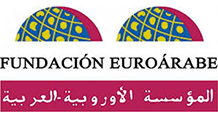
EURO-ARAB FOUNDATION FOR HIGHER STUDIES (FUNDEA)
Research and Projects
Description
The Euro-Arab Foundation (FUNDEA) is a highly specialized institution that works within the fields of cooperation, training and research, creating a space for dialogue and collaboration between the countries of the European Union and the Arab League as well as between the local, regional, national and European social and institutional actors and its Arab and Islamic communities agents on the other. It is a non for profit research, education and cultural institution that has its origins in a European Parliament resolution of March 30th 1984.
The Foundation is entrusted with promoting cultural, scientific and academic relations between Europe and the Arab World, throughout the dissemination of scientific and humanistic knowledge produced in universities, research centres and civil society organizations, in order to contribute to the reinforcement of dialogue. For that purpose, the Foundation’s work is focused on the promotion of studies and researches as well as platforms and forums of discussion and debate.
FUNDEA carries out high-level research and advanced training that focuses mainly on democratic governance, security, intercultural and religious dialogue as well as diversity management, migration flows and migrants integration, or prevention of violent extremism and radicalization that lead to terrorism by promoting mutual understanding, multicultural peaceful co-existence and diversity richness as fundamentals for preventing and combating racism, xenophobia and other forms of intolerance.
FUNDEA has a broad experience implementing various European, national and local research and innovation projects as well as developing social action initiatives. We pay special care to the different projects’ needs through an outstanding international team of professionals with remarkable experience and competence, as well as a high degree of specialization. FUNDEA also counts on a network of internationally recognised external specialists who contribute to complement and provide an additional value to the different projects´ development.
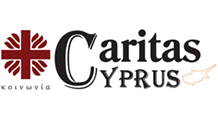
CARITAS CYPRUS (CARITAS)
Description
Caritas Cyprus is dedicated to serving the poor and promoting charity and justice for the most vulnerable members of society. It works at the grassroots level to address hunger and homelessness; to improve educational and economic opportunities for youth; and to ensure access to basic legal, administrative, health and psychosocial services for all.
Each month, Caritas Cyprus provides food and social support to hundreds of families through its parishes across the island. Likewise, it assists an increasing number of migrants, asylum seekers, victims of human trafficking and refugees as they navigate the difficulties of displacement and integration. It operates migrant centers in Nicosia and Larnaca that provide a range of services to the needy as well as two transition shelters—one for vulnerable men and one for at-risk women and women with children.
As recognized experts in the field of migrant support, Caritas Cyprus also partners with international relief organizations and research institutes to plan and implement projects that further its work in this area. It leverages its networks of practitioners and beneficiaries to contribute to valuable research, pilot innovative initiatives that may improve service delivery and outcomes, and institutionalize proven programs to improve the lives of the most vulnerable.
FONDAZIONE BRUNO KESSLER (FBK)
Center for Information and Communication Technology
Description
Top research institute in Italy, Fondazione Bruno Kessler (FBK) is a research non-profit public interest entity. Being the result of a history that is more than half a century old, through 2 scientific hubs, 7 research centers, 410 researchers, 2 specialised libraries, 7 laboratories, FBK aims to results of excellence in science and technology with particular emphasis on interdisciplinary approaches and to the applicative dimension. FBK achieves this thanks to its constant attention to collaborations and exchange activities with research organizations, both institutional and corporate, national and international. FBK participates in this project with its Center for Communication and Information Technology (FBK-ICT). FBK-ICT focuses on high quality research with impact to market and society. Scientific excellence cannot be detached from impact to market and society, as well market and societal impact cannot be detached from scientific outstanding research. FBK joins the PERCEPTIONS Consortium with the following structures: 1) the Digital Society Line (DSL): DSL is a multidisciplinary group of 80 researchers and technologists working in different areas related to sustainability and quality of life in urban and rural contexts. DSL embraces the vision that ICT has the potential to be a key transformational technology to improve sustainability and quality of life. In DSL, this goal is achieved by engaging the whole community (citizens, administrations, enterprises) in a living lab for experimenting innovative solutions able to meet the important societal challenges that cities and communities are facing; 2) the Project Management Group (PMG): PMG was established to assist FBK-ICT with all of their project management needs. The purpose of the PMG is to provide a unified approach for defining, managing, reporting and supporting the project management practices for FBK-ICT research.

HELLENIC POLICE (HP)
Description
The Hellenic Police assumed its present structure in 1984 when the Gendarmerie (Chorofylaki) and the Urban Police Forces (Astynomia Poleon) were merged (Law 1481/1-10-1984, Government Gazette 152 A). Hellenic Police (Elliniki Astynomia) is a Law Enforcement Agency according to the Law nr. 2800/2000 and its mission is to:
- ensure peace and order as well as citizens` unhindered social development, a mission that includes general policing duties and traffic safety
- prevent and interdict crime as well as to protect the State and the democratic form of government within the framework of constitutional order, a mission that also includes the implementation of public and state security policy
Hellenic Police is comprised of both central and regional Services. Hellenic Police`s headquarters is the supreme authority over these Services. Its efforts center on the fulfillment of the Force`s mission, within the framework of the Ministry of Interior`s policy. For this reason it schedules, directs, oversees and monitors the activities of its Services, and it ensures the necessary conditions for the exercise of its authority.
In its continuous mission to serve and protect citizens, Hellenic Police has responded to our times` demands and challenges by improving training, adopting a modern crime prevention policy, better utilizing science and technology and by exploiting international law enforcement cooperation.
MINISTRY OF PUBLIC SECURITY – ISRAEL NATIONAL POLICE (MOPS-INP)
Description
The Israel National Police (INP) is under the authority of the Ministry of Public Security (MOPS). The INP is comprised of some 30,000 sworn officers and reinforced by 50,000 volunteers. It is the only Law Enforcement Agency in Israel responsible of policing activities.
The responsibilities of INP cover all aspects of policing from the local through the national levels.
The main areas on which the Israel Police focuses are:
Maintaining Law and Order – Response to calls regarding public disturbances, response to demonstrations and illegal gatherings, licensing for businesses, responsibility for detainees and implementation of court orders.
Public Security – The prevention and responding to criminal and terror acts, establishing security standards and regulations, Bomb Disposal Activity, operating negation teams etc.
Fighting Crime through Investigation and Intelligence – Investigation and prevention of crimes and apprehension of offenders, detection and exposure of unreported crimes, verity of activities in cyber-crime and forensic investigations by the DIFS: Department of Investigation and Forensic Science.
Traffic Enforcement – Enforcement of traffic laws, investigating traffic accidents and apprehension of traffic offenders. In addition, participation in the decision-making process in such matters as the planning and construction of roads, placement of road signs and traffic lights.
Border Security – An operational corps of the Israel National Police. The multipurpose corps deals with challenges relating to public security, terror, riot control and securing of rural areas.
CHIEF DIRECTORATE BORDER POLICE (CDBP)
Description
Chief Directorate Border Police (CDBP) is one of the chief directorates within the Ministry of Interior. It is a national specialized structure with protective, preventive and investigative functions. Its main purpose is to perform border control and protection of the state borders of the Republic of Bulgaria.
The total length of Bulgaria’s borders is 2 368 km. Out of them, EU external borders are 1 225 km, with 412 km sea border and 813 km land border.
The Bulgarian Border Police is a centralized unit with well defined organizational structure and three levels of governance:
The first level is the Chief Directorate Border Police HQ, responsible for the overall management and coordination of the Border Police national, regional and local units.
The second level consists of 7 /seven/ Regional Directorates Border Police, each responsible for a specific border (land borders with Serbia, FYROM, Greece, Turkey and Romania, the Black Sea border and international airports).
The third level includes 37 /thirty-seven/ local Border Police Units with 35 /thirty-five/ Border Crossing Points (BCPs) and 2 /two/ Border Police Vessels Bases located respectively on the Danube river and at the Black sea (near the city of Burgas).
In line with Schengen best practices, CDBP has set up a specialized Air Surveillance Unit. The Bulgarian Border Police plays a crucial role in safeguarding EU’s external borders. Its efforts are focused on enhancing the effectiveness of border control and prevention of illegal migration, as an indispensable part of the integrated border management.
The human and technical resources dedicated to border control are conditioned by the intensity and profile of travelers’ flow, assessment of threats and risk analysis. The Bulgarian Border Police deploys adequate infrastructure, equipment and modern technical devices in its efforts to combat illegal migration, trafficking in human beings and cross-border crime.
However, CDBP has to remain committed and react in due time if new trends occur or if there is a shifting of the route, what were the expectations of most European partners.
Currently in CDBP HQ work around 300 persons in the different areas of competences which CDBP has according to the law.
UNIVERSITY OF APPLIED SCIENCES FOR PUBLIC SERVICE IN BAVARIA
Description
The Department of Police is located in Fürstenfeldbruck and in Sulzbach Rosenberg and currently trains the majority of police students in Bavaria at the campus in Fürstenfeldbruck. Students here train for their career on professional and executive levels for the Police Enforcement Service (either Police Force / Constabulary or Criminal Investigation Police Department). The University of Applied Sciences – Police Affairs (HfoeD) teaches future higher ranked police officers in various disciplines including psychology, political science and social sciences.
The inter-disciplinary research team of the HfoeD examines various domains relevant for policing including cybercrime, radicalisation, extremism, terrorism among others. Security research for and via the police strengthens everyday networking in police practice with training and further education, in other words integrating theory and practice. The research team of the HfoeD provides scientific knowledge on relevant topics in the field (i.e. security research, crime prevention or crime research) to police or institutions of the security structure and aids in the design of further training courses and seminars and the mediation of contacts. In addition, the research team supports police and security authorities by providing scientific services in solving day-to-day problems.
Furthermore, the HfoeD works closely with the Ministry of the Interior and the Police Departments in Bavaria to maintain current standards between theory and practice and to serve the needs of police officers and citizens, alike. Aside from the European research projects (examples under relevant projects), the HfoeD supports the police academy in Bulgaria within Erasmus projects, a partnership with the police academy in Bucharest, Romania, a partnership with the police academy in Prague, Czech Republic and a further partnership with the University for Policing in Poland.


